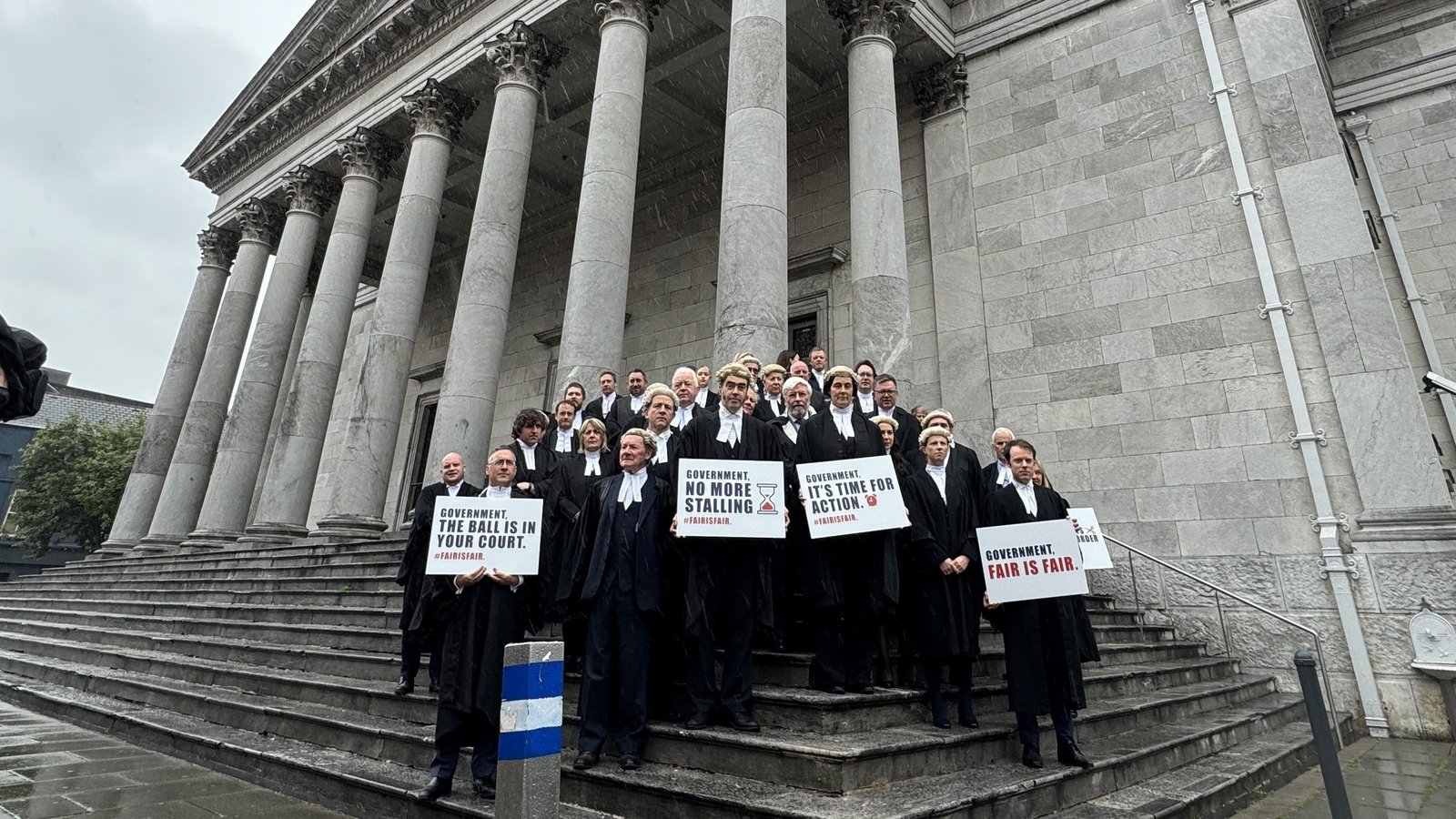World
Criminal law barristers withdraw services in pay dispute

Barristers who work in criminal law across the country have withdrawn their services, in what is the first of three days of action this month in a dispute over pay.
Services will also be withdrawn next Monday, and on Wednesday 24 July.
Last October, in an unprecedented move, barristers and criminal defence solicitors withdrew their services for the first time in their dispute over what they say is the Government’s failure to reverse cuts to their pay imposed in the aftermath of the financial crash.
In the subsequent Budget, the Government agreed to increase the fees of criminal barristers and solicitors by 10%. It also committed to a review process looking at the structure and level of fees paid.
The body representing the country’s barristers, the Council of The Bar of Ireland, said that before the 10% pay restoration, fees paid by the State to criminal barristers were more than 40% below 2002 levels.
It said that even with the 10% increase, cuts applied across the public sector in the financial crisis continue to apply to the profession and the breaking of the link with public sector pay agreements has still not been restored.
Chair of The Bar Council’s Criminal State Bar Committee Sean Guerin said that there will be delays for people in the courts as a result.
Speaking on RTÉ’s Morning Ireland, he said barristers have not had their pay cuts restored despite them having co-operated with changes in the justice system.
He added that barristers have co-operated with “significant improvements in flexibility and reform” in the criminal justice system since 2018.
“And in doing so, have met the condition for restoration of the temporary pay cuts.
Mr Guerin noted that Minister for Justice Helen McEntee has said “there is no good reason why pay restoration hasn’t taken place.
“We have been waiting now since 2016, but at least in 2018 it was acknowledged that we had met the conditions for pay restoration.
“There’s no good reason why the Government couldn’t now give a commitment to resolve this long outstanding issue. This long, outstanding unfairness, and implement in the budget.”
Mr Guerin acknowledged that some criminal law barristers are well paid, but said “most of them are not”, adding that there is concern around the number of junior level barristers leaving practice.
“We know for a fact that two-thirds of those who begin practising criminal law will give up that practice within six years. And that has long-term consequences in terms of having available in the future a cohort of barristers who have the training and the education, but also the experience necessary to handle the most difficult and sensitive cases.”
Mr Guerin explained that the rates of pay vary from case to case and there are different types of cases.
The real issue, he said, is that until the partial pay restoration was introduced in January, pay rates were at 2002 levels.
“I want to emphasise as well that if complete pay restoration took place in the morning, the effect of inflation since 2008 would still have reduced barristers pay by the order of 15 or 16%, and we’re not even looking for that back.
“We’re not looking for a pay increase. We’re looking for simply FEMPI era pay restoration.”










